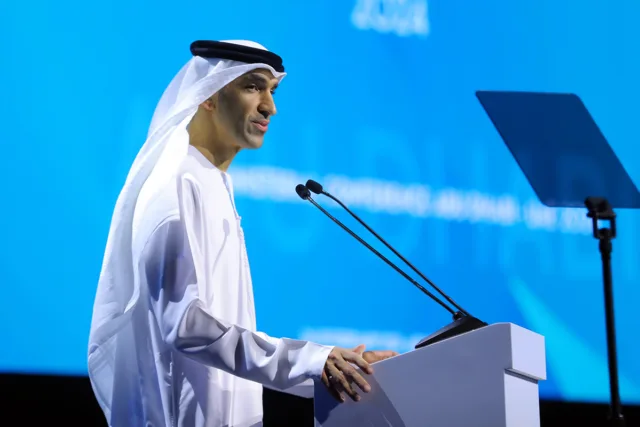The 13th Ministerial Conference (MC13) of the World Trade Organisation (WTO) took place from February 26–29, 2024. This year, the conference was held in Abu Dhabi, United Arab Emirates. The Conference occurs once every two years and is considered the topmost decision-making body of the WTO. All the members of the WTO, both countries and customs unions, participate in the conference. It can make decisions on matters related to multilateral trade agreements. H.E. Dr Thani bin Ahmed Al Zeyoudi, UAE’s Minister of State for Foreign Trade, chaired the MC13. Following are a few highlights of the meeting:
Accession
The MC13 witnessed a historic moment with the inclusion of two least developed countries (LDCs) in the WTO for the first time since 2016. One of these countries is Comoros, an LDC in the Indian Ocean. WTO Director-General Ngozi Okonjo-Iweala congratulated Comoros on its membership. She appreciated the efforts of Comoros President Azali Assoumani and his colleagues for their support of the request. Timor-Leste is the second LDC to be included. This island country is at the southern end of the Malay Archipelago, off the southeastern coast of Asia. The conference held in Timor-Leste was an example of reform and modernisation.
Strengthening Trade and Inclusivity
Informal Working Groups (IWGs) members on Trade and Gender and Micro, Small, and Medium-sized Enterprises (MSMEs) together inaugurated a pathbreaking initiative to map women’s progress in development. This inclusive policy tool will help map the government’s efforts at providing financial access to women entrepreneurs. This event reflected the WTO’s commitment towards boosting inclusive trade.
Discussions on Sustainability
On February 26, 2024, 76 WTO members participated in the Trade and Environmental Sustainability Structured Discussions (TESSD). They highlighted achievements since MC12 and mapped out a future course of action in trade policy. By working on the group’s lucid analytical work and identifying policy options and relevant practices, TESSD will surely be able to deliver results by MC14.
Services Domestic Regulation
There were announcements of a few new disciplines on services domestic regulation in MC13 on February 27. According to these, trade costs will be lowered by over USD 125 billion globally. Director-General Ngozi Okonjo-Iweala and MC13 Chair Thani bin Ahmed Al Zayoudi attended the event, overseeing the announcements. Costa Rica’s Foreign Trade Minister, Manuel Tovar, and the European Commission’s Vice President, Valdis Dombrovskis, represented the Joint Initiative on Services Domestic Regulation at the event.
Environmental Initiatives
Three environmental initiatives that impressed the august audience in the MC13 were Dialogue on Plastics Pollution and Sustainable Plastics Trade (DPP), Fossil Fuel Subsidy Reform (FFSR), and Trade and Environmental Sustainability Structured Discussions (TESSD). Building on the substantive work carried out by MC12, these initiatives will take action on plastic pollution, fossil fuel subsidy reform, and environmental sustainability.
Contributions for LDCs
The Swedish government announced a contribution of SEK 27 million (approximately CHF 2.3 million) for LDCs to boost economic growth with the help of the Enhanced Integrated Framework (EIF). This contribution has been made in light of a new multilateral support mechanism for LDCs as envisioned by the EIF. Abu Dhabi also contributed a generous amount of AED 1 million (CHF 240,000) to LDCs to aid their participation in the MC13.
Business Forum
On February 28, Director-General Ngozi Okonjo-Iweala pointed out the importance of the business community’s engagement with the WTO. After the forum, the International Chamber of Commerce presented its MC13 business priorities to the Director and MC13 Chair, H.E. Dr Thani bin Ahmed Al Zeyoudi.
Fisheries and Agriculture
The MC13 witnessed an elaborate discussion on matters related to fisheries and agriculture. Following a long convergence discussion on fishery subsidies, the Philippines presented its acceptance of the Fisheries Subsidies Agreement. According to an official press release, members discussed three crucial elements of agriculture: “the balance across topics in terms of the specificity of issues to be addressed, timelines, and expected outcomes; the deliverables for the most vulnerable members in respect of the possible exemption of their imports from other members’ export restrictions; and public stockholding (PSH) for food security purposes.”
The high-level ministerial meeting was successful and paved the way towards MC14.









